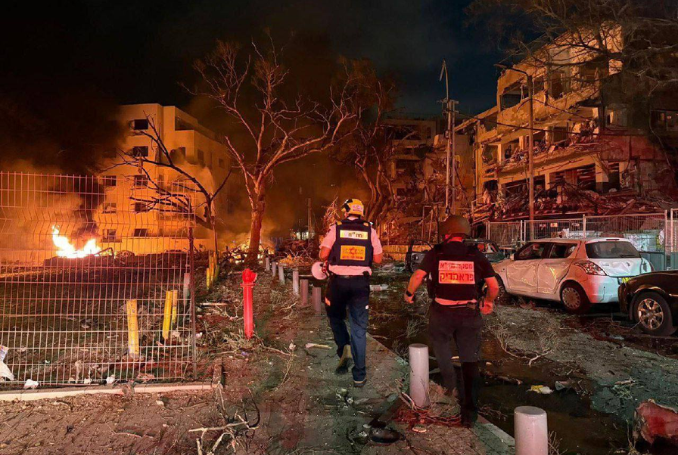

While Israeli officials claim that 90 percent of the roughly 400 missiles launched by Iran so far have been intercepted, signs of system fatigue are already visible.
Israel’s air defense systems may be approaching exhaustion, and without resupply or deeper US military involvement, they could falter within 10 to 12 days if Iran maintains the current pace of missile attacks, The Washington Post reported on Tuesday, citing assessments from Israeli and US intelligence.
According to an informed source, Israel’s ability to intercept incoming missiles could start diminishing as early as this week. “They will need to select what they want to intercept,” said the source, who spoke anonymously due to the sensitivity of the matter. “The system is already overwhelmed.”
While Israeli officials claim that 90 percent of the roughly 400 missiles launched by Iran so far have been intercepted, signs of system fatigue are already visible, the Post noted.
On Friday, Iranian missiles bypassed Israeli defenses and struck near the headquarters of the Israel Defense Forces in Tel Aviv.
🎥
Footage shows the moment Iranian missiles hit an Israeli site in Herzliya, north of Tel Aviv, this morning — footage was reportedly censored by Israeli military authorities. pic.twitter.com/VjWqq99Vjx
— The Palestine Chronicle (@PalestineChron) June 17, 2025
On Sunday, a missile disabled a major oil refinery near Haifa. And on Tuesday morning, verified video footage showed four missile impacts in the vicinity of Israel’s intelligence compound north of Tel Aviv, with one striking inside Camp Moshe Dayan—home to Israel’s military intelligence and Unit 8200.
The Arrow system, Israel’s main line of defense against Iranian missiles, poses a particular challenge. Each interceptor costs approximately $3 million, according to Tal Inbar, an Israeli missile expert affiliated with the Missile Defense Advocacy Alliance in Virginia, cited by the Post.
“It could be a factor in a ceasefire,” Inbar said, recalling how Israel sought a truce with Hamas in 2014 just days before it ran out of interceptors.
“In comparison to the Arrow system, the Iron Dome is like shooting a 9-millimeter pistol at heavy Iranian missiles,” Inbar added, noting the limitations of Israel’s lower-tier systems when facing advanced Iranian projectiles traveling at hypersonic speeds.
Despite Israel’s claims of defensive success, Iranian media outlets have broadcast footage of multiple impacts and reported statements by the Islamic Revolutionary Guard Corps (IRGC) that several Israeli intelligence and military personnel were killed. The Israeli military has not responded to those claims.
Heavy airstrikes were carried out on the Iranian capital of Tehran. pic.twitter.com/4gvr4fQd02
— The Palestine Chronicle (@PalestineChron) June 17, 2025
Meanwhile, the toll from the escalating conflict continues to mount. As of Tuesday, Israeli officials confirmed the deaths of 24 civilians and over 600 injuries from Iranian strikes.
Iran, for its part, says 224 people have been killed in Israeli attacks, including targeted strikes on densely populated areas and residential buildings.
On Monday, Israel bombed the headquarters of Iran’s state broadcaster during a live news transmission.
Israeli Defense Minister Israel Katz had vowed to eliminate “the mouthpiece of Iranian propaganda,” while the Israeli army later claimed it had hit a military communications center—though no evidence of a military presence was provided.
As Iran continues to target strategic Israeli infrastructure and command centers, the sustainability of Israel’s missile defense is now under serious question.
(The Palestine Chronicle)










